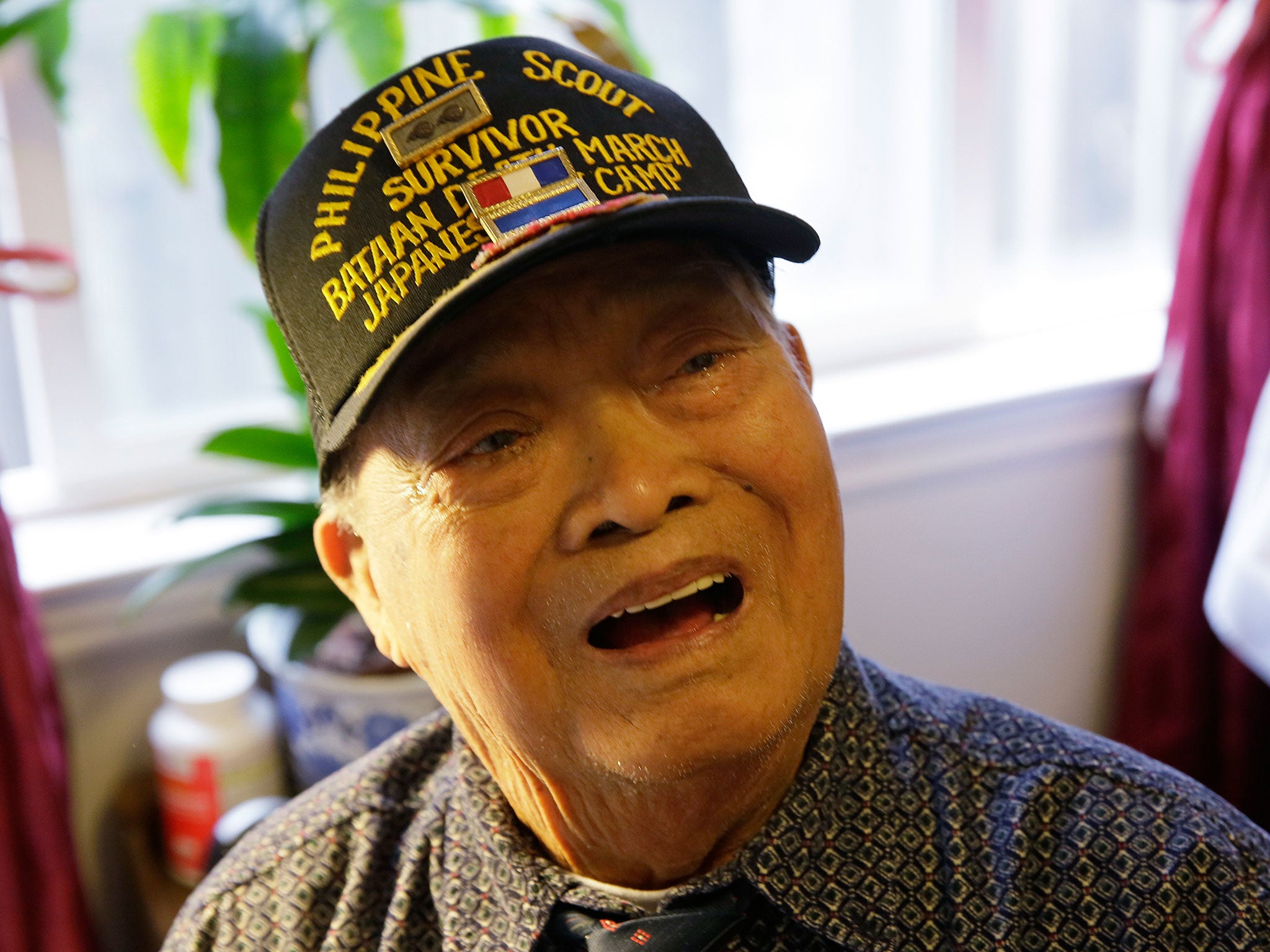Second World War veteran who endured notorious Bataan death march dies, aged 100
Ramon Regalado was celebrated for his efforts battling the Japanese

Your support helps us to tell the story
From reproductive rights to climate change to Big Tech, The Independent is on the ground when the story is developing. Whether it's investigating the financials of Elon Musk's pro-Trump PAC or producing our latest documentary, 'The A Word', which shines a light on the American women fighting for reproductive rights, we know how important it is to parse out the facts from the messaging.
At such a critical moment in US history, we need reporters on the ground. Your donation allows us to keep sending journalists to speak to both sides of the story.
The Independent is trusted by Americans across the entire political spectrum. And unlike many other quality news outlets, we choose not to lock Americans out of our reporting and analysis with paywalls. We believe quality journalism should be available to everyone, paid for by those who can afford it.
Your support makes all the difference.A Filipino-American man who survived one of the Second World War's most brutal episodes and helped America battle the Japanese has died at the age of 100.
Ramon Regalado helped fight to rebuff a Japanese invasion while serving with the Philippine Scouts under the US Army. When that effort failed, he was among the tens of thousands of prisoners who endured a more than 60-mile trek known as the Bataan death march.
After his capture, Mr Regalado escaped and joined a resistance movement battling Japanese troops, according to accounts of his service.
“We fought for four months. We were the ones who upset the (Japanese) timetable. They could not kill us,” Mr Regalado recounted at his 100th birthday party, according to the Martinez Tribune, telling listeners that disease-carrying mosquitoes posed their own peril: “We were very sick. There was no medicine”.
Cecilia Gaerlan, executive director of the Bataan Legacy Historical Society, confirmed Mr Regalado’s death to the Associated Press but did not have a cause of death. He has lived in the United States since 1950.
“He really embodied the qualities of the greatest generation and love for country,” she told the news agency.
Earlier this year, Congress awarded a Congressional Gold Medal that recognised the often-unheralded efforts of men like Mr Regalado to resist the Japanese war juggernaut.
The resolution behind the accolade noted that even after 6,000 to 10,000 Filipinos perished during the forcible march, resistance fighters continued to raid Japanese camps, ambush Japanese troops and “with little weaponry, and severely outmatched in numbers, began to extract victories”.
“I did not go home until General (Douglas) MacArthur came back to the Philippines, to liberate the Philippines,” Mr Regalado told KQED. “I fought hard.”
Join our commenting forum
Join thought-provoking conversations, follow other Independent readers and see their replies
Comments